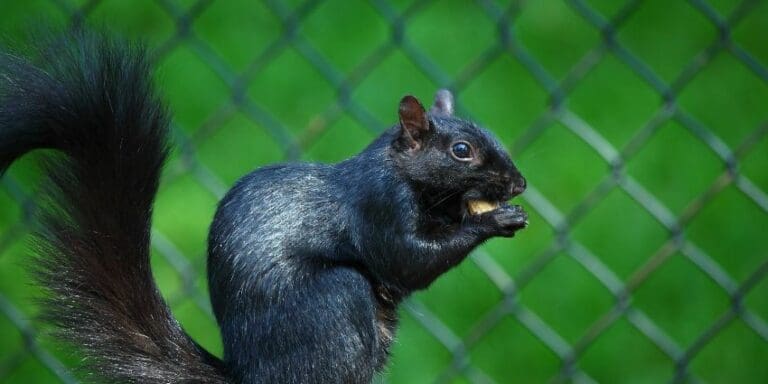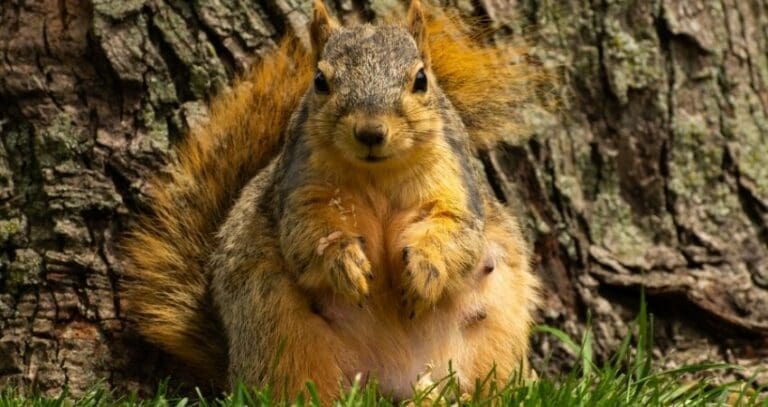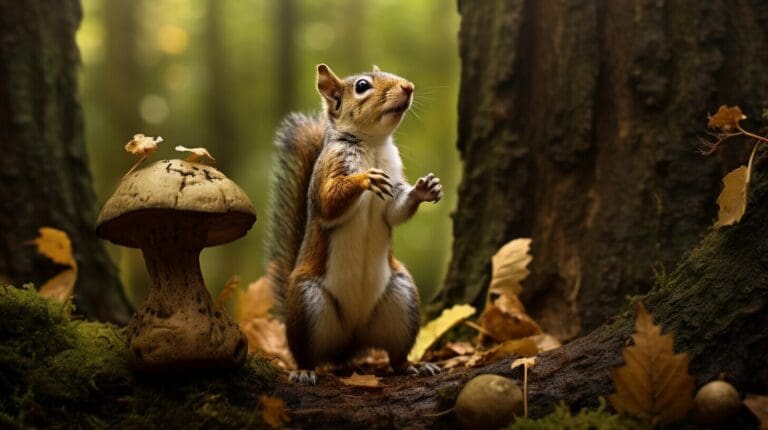Are Squirrels Good or Bad for Your Yard? Find Out Today!
When it comes to squirrels in your yard, it can be hard to decide if they are a blessing or a curse. These furry little creatures can be entertaining to watch, but they can also cause havoc on your garden and bird feeders. So, are squirrels good or bad for your yard? Let’s take a closer look.
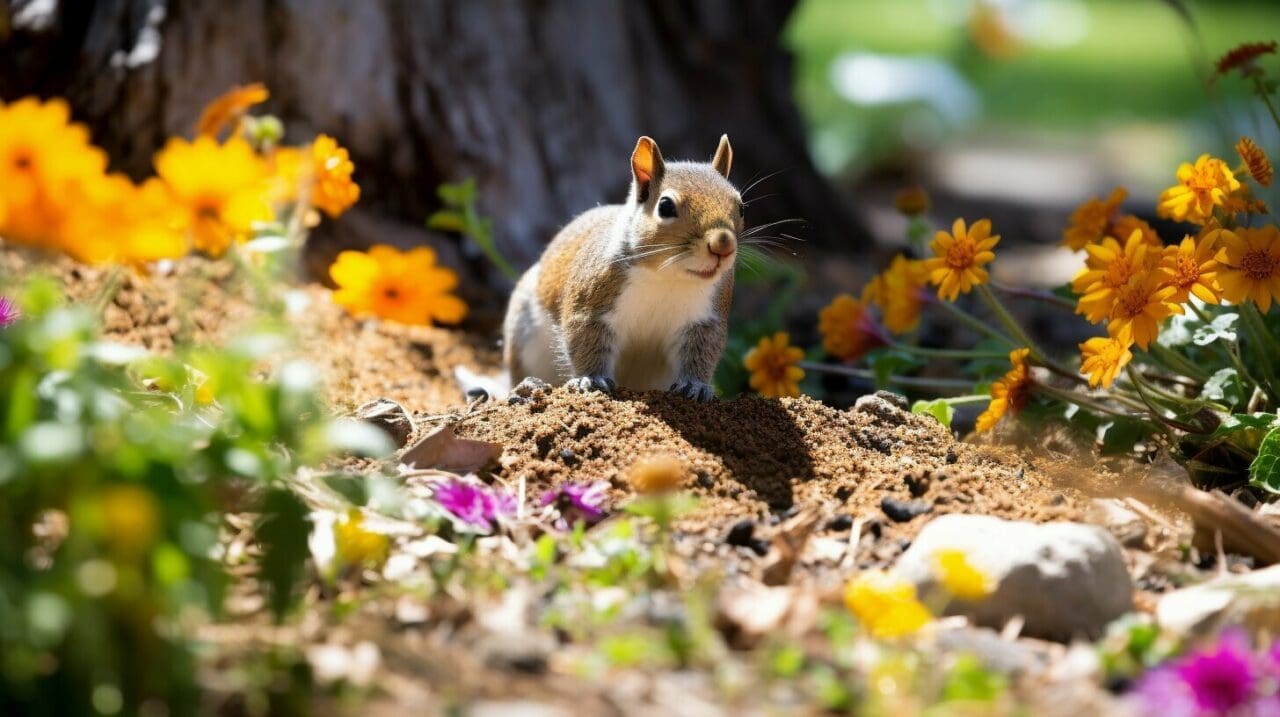
First off, it’s important to note that squirrels are a natural part of the ecosystem, and they can actually be beneficial to your yard in some ways. For example, squirrels play a role in spreading seeds and helping to pollinate plants.
However, squirrels can also cause damage to your yard by digging up bulbs, gnawing on tree bark, and raiding bird feeders. They can also create nests in your attic or walls, which can lead to costly repairs.
So, before you decide if squirrels are good or bad for your yard, it’s important to understand the different ways they can impact your outdoor space.
Key Takeaways:
- Squirrels can be beneficial by helping to spread seeds and pollinate plants.
- Squirrels can also cause damage to your yard by digging up bulbs, gnawing on tree bark, and raiding bird feeders.
- Understanding the different ways squirrels can impact your yard is key to deciding if they are good or bad for your outdoor space.
The Benefits of Squirrels in Your Yard
Are you tired of those pesky squirrels stealing birdseed and digging up your plants? Think again before you start shooing them away! Squirrels are not only adorable and entertaining, but they also provide numerous benefits to your yard. Here are just a few reasons to embrace these bushy-tailed creatures:
| Benefit | Description |
|---|---|
| Seed Dispersal | Squirrels play a crucial role in planting trees and other vegetation by burying nuts and seeds throughout your yard. This can lead to a more diverse and healthy ecosystem. |
| Pest Control | Squirrels are natural predators of insects, such as caterpillars and beetles, which can damage your plants. By having squirrels in your yard, you can reduce the need for harmful pesticides. |
| Entertainment | Let’s face it, watching squirrels chase each other around your yard is just plain fun. Plus, their acrobatic abilities are sure to impress! |
So, the next time you see a squirrel scurrying across your lawn, take a moment to appreciate all the benefits they bring to your yard. Who knows, you may even find yourself welcoming them with open arms!
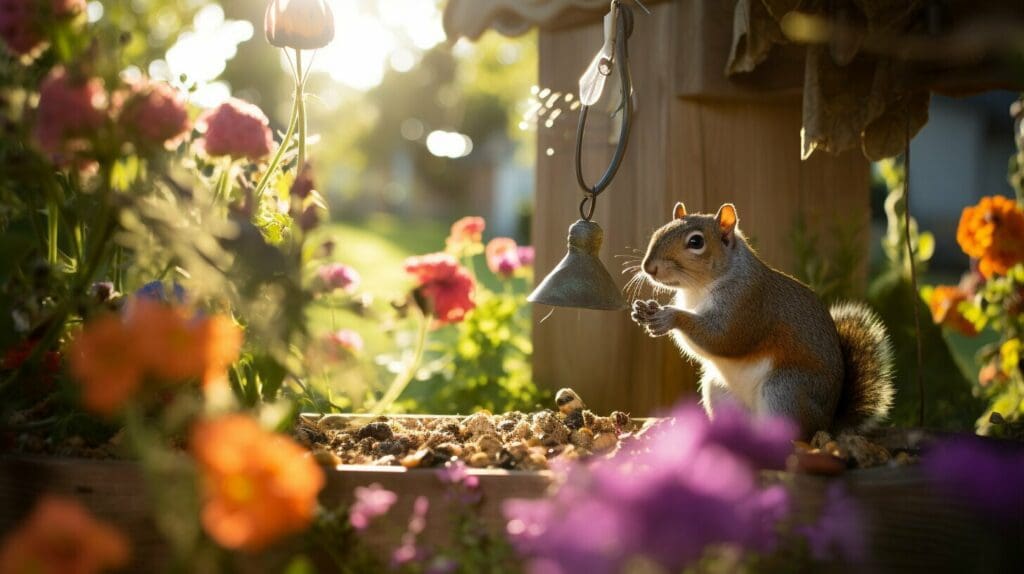
The Negative Impact of Squirrels in Your Yard
At first glance, squirrels may seem harmless and cute, but their presence can cause a variety of problems in your yard.
One of the most common issues is damage to plants and crops. Squirrels have a voracious appetite and will often feed on fruits, vegetables, and nuts. This can be particularly frustrating for gardeners who work hard to cultivate their crops, only to have them destroyed by these furry intruders.
Squirrels can also cause damage to bird feeders and nesting sites for other wildlife. They are notorious for stealing bird seed and damaging feeders in the process. In addition, squirrels may take over nesting boxes intended for other animals, such as bluebirds or chickadees, driving them away from the area.
Another potential issue is their habit of digging holes and tunnels in lawns and gardens. This can create unsightly damage and even trip hazards for people walking in the yard.
Lastly, squirrels can carry diseases such as rabies and salmonella, posing a risk to pets and people who come into contact with them.
Preventing Squirrel Damage in Your Yard
While it may be impossible to completely eliminate squirrels from your yard, there are some steps you can take to minimize the damage they cause.
One effective method is to use physical barriers such as netting or fences to keep them away from plants and feeders. Another option is to use squirrel-resistant bird feeders with metal cages or weight-activated perches that close off access to the seed when a squirrel tries to feed.
For those who prefer more natural methods, planting squirrel-resistant plants like daffodils, alliums, or hyacinths can help deter them from digging in the yard. Additionally, providing other sources of food such as squirrel feeders or corn cobs can help keep them satiated and less likely to turn to your garden for a meal.
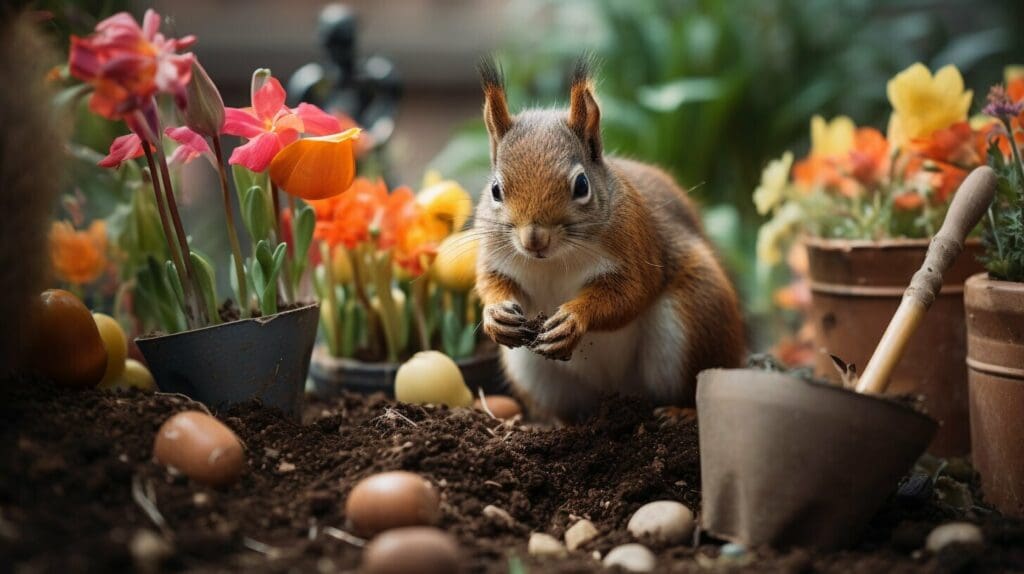
With a little effort and planning, it is possible to find a balance between enjoying the presence of squirrels in your yard and minimizing the damage they can cause.
Controlling Squirrel Behavior in Your Yard
So, you’ve discovered the negative impact that squirrels can have on your yard. Don’t worry, there are plenty of ways to deter them from causing any more damage. Here are some practical tips:
| Deterrent | Effectiveness |
|---|---|
| Barriers | High |
Physical barriers, such as netting and fencing, can effectively keep squirrels out of areas you want to protect. Be sure to bury the barrier at least six inches deep to prevent squirrels from digging underneath. |
|
| Repellents | Medium |
Natural repellents, such as pepper spray and predator urine, can be effective in deterring squirrels. However, they may need to be reapplied regularly and may not be suitable for all situations. |
|
| Squirrel-proof bird feeders | Low to medium |
Investing in a squirrel-proof bird feeder can help keep squirrels from stealing birdseed. However, some persistent squirrels may find a way around the feeder’s defenses. |
Remember, it’s important to address any damage caused by squirrels as soon as possible to prevent it from getting worse. Additionally, keeping your yard clean and free from potential food sources, such as fallen nuts and fruit, can help reduce squirrel activity in the first place.
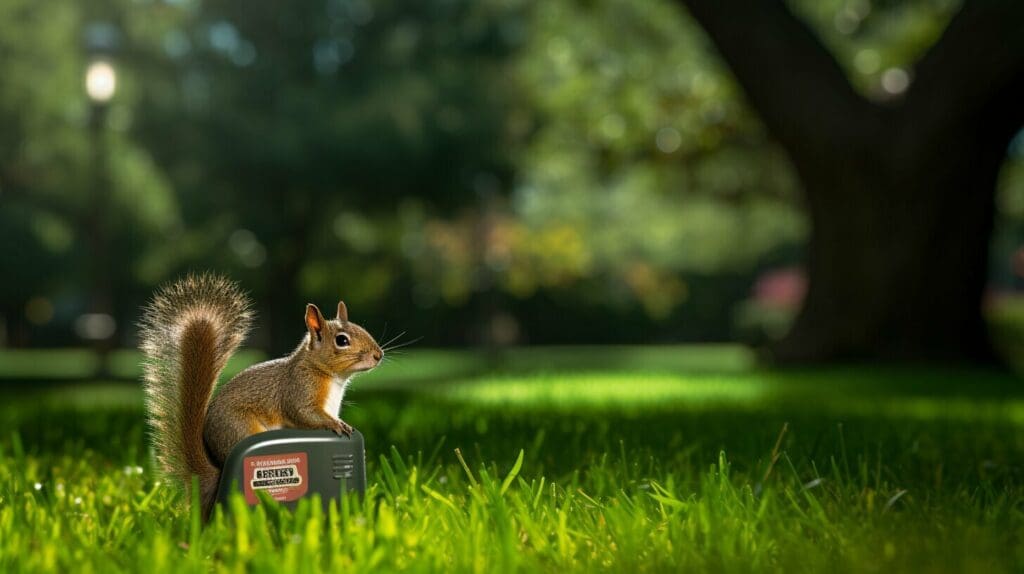
Pro Tip: If all else fails, consider getting a pet dog or cat to patrol your yard. Just make sure they’re trained not to harm the squirrels!
Attracting Squirrels to Your Yard
So, you’ve read about the benefits of having squirrels in your yard, and you’ve decided that you want to attract them. Well, you’re in luck! Squirrels are curious and adaptable creatures, and there are a few things you can do to make your yard more attractive to them.
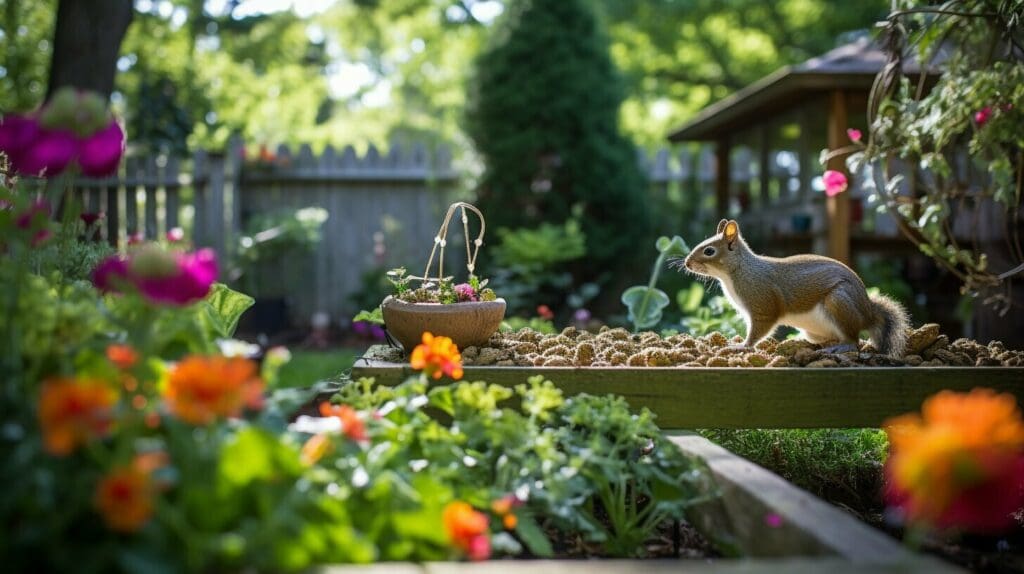
The first step is to provide food. Squirrels love nuts and seeds, so consider putting out a squirrel feeder filled with peanuts, sunflower seeds, or corn. You can also scatter some nuts and seeds on the ground, or hang a mesh bag filled with nuts and seeds from a tree branch.
Another way to attract squirrels is to create a squirrel-friendly environment. Squirrels love trees, especially ones with plenty of branches for climbing and jumping. Plant some trees and shrubs in your yard to provide a natural habitat for squirrels.
Finally, squirrels love water. Consider installing a bird bath or a small fountain in your yard. Not only will it provide drinking water for squirrels, but it will also attract other wildlife.
With these tips, you’re sure to have plenty of squirrels in your yard in no time. Just be prepared for some entertaining antics, like acrobatic jumps and playful chases!
Squirrel Deterrents for Your Yard
While squirrels can be fun to watch, they can also wreak havoc in your yard. Luckily, there are several squirrel deterrents on the market to help keep these pesky critters at bay.
One popular option is a motion-activated sprinkler, which shoots a burst of water whenever a squirrel crosses its path. Not only does this keep the squirrels away, but it also provides some entertainment for you!
An ultrasonic device is another effective option that emits high-frequency sounds that squirrels find unpleasant. These devices can be placed around your yard and turned on whenever you want to deter squirrels.
If you’re looking for a more natural solution, consider using squirrel-proof bird feeders or placing mesh covers over your plants to protect them from squirrel damage.
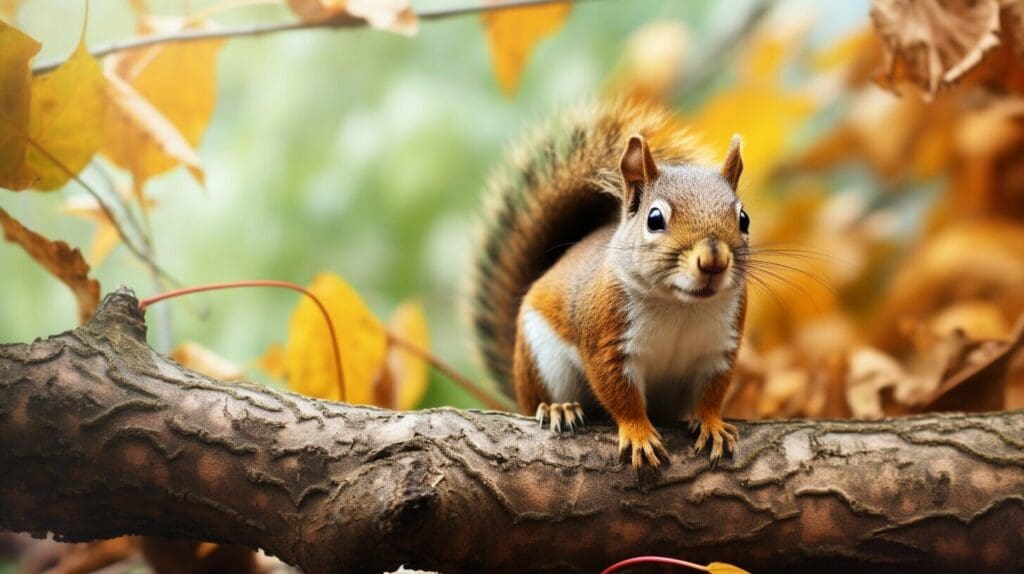
Remember, prevention is the best defense against squirrels in your yard. Keep your yard tidy and free of excess debris, and make sure any potential entry points, such as holes in fences or walls, are sealed off. With a little effort, you can enjoy your squirrel-friendly yard without the hassle of squirrel damage.
Conclusion
In conclusion, squirrels can be both a blessing and a curse for your yard. On one hand, they can provide entertainment and play a role in dispersing seeds. On the other hand, their destructive behavior can cause damage to your plants, bird feeders, and other wildlife habitats. But fear not, dear reader! There are plenty of ways to control squirrel behavior in your yard, from using barriers and repellents to creating squirrel-friendly environments. And if you simply can’t get enough of these furry critters, there are even ways to attract them to your yard. So go forth and enjoy your squirrel-friendly yard, but remember to take precautions to prevent any unwanted damage. Happy gardening!FAQ
Q: Are squirrels good or bad for your yard?
A: Squirrels can have both positive and negative impacts on your yard. Let’s explore both sides!
Q: What are the benefits of squirrels in your yard?
A: Squirrels play an important role in dispersing seeds and contribute to the ecosystem. Plus, their playful antics can provide entertainment.
Q: What negative impact can squirrels have in your yard?
A: Squirrels can cause damage to plants, raid bird feeders, and create nesting sites that may attract other wildlife.
Q: How can you control squirrel behavior in your yard?
A: There are practical tips such as using barriers and repellents to discourage squirrels from causing damage.
Q: How can you attract squirrels to your yard?
A: If you enjoy squirrels, try providing food and creating a squirrel-friendly environment to attract them to your yard.
Q: What are some squirrel deterrents for your yard?
A: From motion-activated sprinklers to ultrasonic devices, there are various squirrel deterrents available on the market.
Q: What tips can you offer for maintaining a squirrel-friendly yard?
A: In conclusion, we’ve discussed the pros and cons of squirrels in your yard. Remember to create a squirrel-friendly environment and use deterrents if needed.
